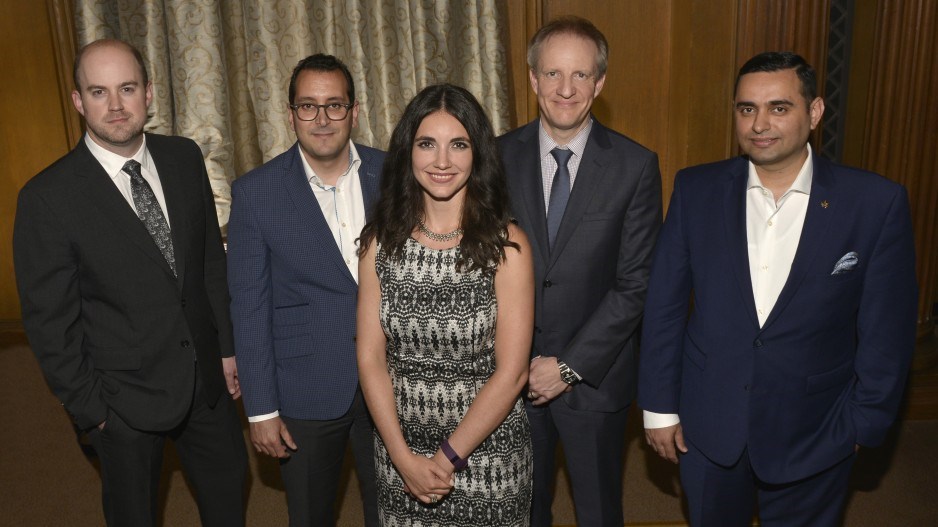With lingering questions surrounding the approaching legalization of cannabis in Canada, panellists set out to provide answers at Business in Vancouver’s most recent Business Excellence Series event.
The question that seems to be top of mind for employers is the regulation and control of workplace intoxication.
“We act for employers large and small all around Western Canada, and the biggest question we get is: “How am I going to know if my employee is impaired?” said Drew Demerse, partner at law firm Roper Greyell, at the Legalizing Cannabis event, held at the Vancouver Club July 12.
Demerse, who specializes in drug and alcohol law, said nearly half of his work over the last year has been cannabis-related.
“’How can I tell, how can I prove it, what do I do if I think they are [impaired]?’’ Demerse asked “That’s the biggest thing I think employers are wrestling with as we approach legalization, and science is nowhere near advising us on how to detect present impairment of people from cannabis.”
According to a recent report by Deloitte, the cannabis industry could soon be worth $22.6 billion. Yet the grey areas of legalization are still perplexing even to industry professionals, and one aspect each panellist was concerned about with was how the change will affect the current cannabis climate.
“How are consumers going to react to this new market … the black market has always existed for over 60 to 70 years so how will it react with legalization,” Rami El-Cheikh, national pharma and life sciences practice leader with PwC.
“We always think of the licensed producers having the first hand but, in reality, they are late entrants, they are going to be competing with both the black market and the grey market,” El-Cheikh said. “Licensed producers today, based on the regulations, are restricted. They can’t introduce innovative products – products that exist in the black market. I suspect that the government is not going to quickly evolve the regulations.”
According to new data released by Statistics Canada, Canadian adults spent $5.7 billion on marijuana last year – 90% of it for illegal, non-medical purposes. There remains skepticism about whether the heavily regulated new market will be able to compete with the seasoned alternative. However, according to Chris Wagner, CEO of Emerald Health Therapeutics, the process will unfold naturally.
“There are three waves that are going to occur, the first wave is the shock wave, which will be flower product and some oil.… There will be an undersupply and at some point, supply will equalize with demand but, initially, there is more demand than there is supply,” said Wagner.
“That, at some point, will stabilize and the field will commoditize and cannabis will become fairly cheap. And then the second wave will be highly branded products to try to defeat commoditization.
“The third wave, which I think is the most interesting, is innovation, so creating brand new products that previously haven’t existed … we are looking at pulling this plant apart and recombining it in different ways, precisely, and joining it in specific conditions to produce specific outcomes, patenting that, and then selling it not just in Canada but all over the world.”
Wagner and his associates at Emerald Health are excited about coming market innovation, but there remain big questions about what shape it will take.
“The big thing we don’t know is amnesty,” said Deepak Anand, vice-president of government relations at Cannabis Compliance Inc. “When are Canadians that have been unfairly and unjustly charged for cannabis that will now be legal get amnesty? We built this industry on the backs of people who have had issues with cannabis access. They have been imprisoned; when are we going to see amnesty for those people?”
He said Canada remains the leading example for other jurisdictions developing their own cannabis strategies.
“We are flooded with people calling us every day,” he said. “The way I see Canada is we are really leading the world in this area. We are being flooded with inquiries, not just from Europe, but South America, Brazil, Latin America, South Africa, India and Japan are all telling us they are looking to get product…. They are looking at developing regulations around legalizing cannabis and they are asking us how we did it.”




